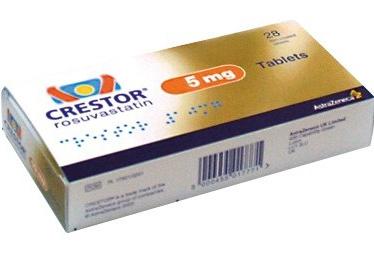Indapamide "- a medicinal product related toto the group of thiazide-like diuretics, has an antihypertensive effect. The medicine "Indapamide" is indicated for use in the presence of arterial hypertension.
Pharmacological action of the drug "Indapamide"
The instruction notes that according to the pharmacologicalproperties of the drug are related to thiazide diuretics. The effect of a drug that is capable of selective blocking of "slow" calcium channels, contributes to an increase in the elasticity of the arterial walls, thereby reducing the overall peripheral vascular resistance.
"Indapamide" does not change the carbohydrate metabolism, thatis acceptable for patients with diabetes mellitus, and also does not affect the concentration of lipids in the plasma. Tablets "Indapamid" help to reduce hypertrophy in the left ventricle of the heart, reduce the sensitivity of the vascular walls to noradrenaline and angiotensin II, stimulate the synthesis of prostaglandin E2, reduce the production of oxygen radicals. Usually, on the 5th-7th day of treatment, the drug exhibits an antihypertensive effect, which persists with a single dose throughout the day.
Pharmacokinetics of the drug "Indapamide"
The instruction informs, that the medicine is peculiarhigh bioavailability (93%) and absorption in the digestive tract. The absorption rate is affected by eating. The greatest concentration of the drug in the blood is created within an hour or two after taking the drug in an amount of 2.5 mg. The medicine is metabolized by the liver. 60% -80% of the substance is excreted through the kidneys in the form of metabolites, about 20% - through the intestine. The drug has no cumulative ability.
Indications for use of "Indapamide"
The instruction prescribes the use of a medicament to lower blood pressure. Also, the drug is recommended for people who have chronic heart failure.
Contraindications
"Indapamide" is contraindicated in:
- hypersensitivity to it and other derivatives of the sulfonamide group,
- anuria,
- hypokalemia,
- severe hepatic or renal insufficiency,
- the period of lactation,
- acute pathology of cerebral circulation,
- pregnancy,
- age up to 18 years (due to lack of knowledge),
- simultaneous use of drugs that increase the QT period.
With caution appoint this drug in the presence of gout and diabetes in the decompensation stage.
The way of application and dosage of the medicine "Indapamide"
The instruction recommends taking the pills inside,not chewing. 2.5 mg (daily dose) is best used in the morning or afternoon. In the case where a 1-2-month course of treatment with a drug does not bring the desired therapeutic effect, an increase in the dose is not recommended due to an increased risk of side effects. In this case, one more antihypertensive agent, which is not a diuretic, should be added to the scheme of medicamental therapy of hypertension. When treating two antihypertensive drugs, the dose of the drug "Indapamide" remains the same.
Overdose
Symptoms of overdose manifest weakness,violation of the functions of the gastrointestinal tract, nausea, vomiting, water-electrolyte disorders. In some cases, an overdose of respiratory depression and excessive lowering of blood pressure may occur. In patients with cirrhosis of the liver, a hepatic coma may occur.
In case of an overdose it is necessary to carry out a correction to normalize the water-electrolyte balance: gastric lavage and symptomatic therapy.
Interactions
Enhances the effect of other drugs from high blood pressure. It is not recommended to combine with drugs containing lithium, vincamine, potassium-diuretics.
Side effects of medication "Indapamid"
Similar as in cases of overdose.Possible heart rhythm disturbance due to potassium loss. Also, side effects can manifest weakness, a sharp decrease in pressure when trying to get up, nausea, abdominal pain, diarrhea, cramps, allergic reactions. In rare cases, it is possible the aggravation of gout, convulsions.












